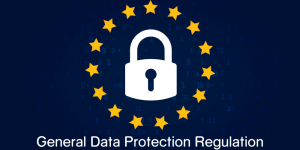
AI platforms such as OpenAI’s ChatGPT, Google’s Bard, etc., have received significant attention due to their ability to engage in human-like conversations, answer queries, and even produce text, images, and music that closely resemble human creations. The swift advancements of AI technology have started to raise concerns about its effects on employment, privacy, copyright protection, and even human safety. Several countries are now taking steps to regulate an AI laws over its usage.
Governments worldwide are striving to strike a balance between harnessing the benefits of advanced technology. And Europe has become the first region to implement AI laws specifically addressing artificial intelligence.
On Friday, Europe agreed upon a preliminary agreement on significant regulations for the use of artificial intelligence within the European Union. These rules cover various aspects, including the use of AI in biometric surveillance by governments and the regulation of AI systems like ChatGPT.
Yes, you read that right! The European Union (EU) is taking a significant step towards becoming the first major world power to implement comprehensive laws regulating artificial intelligence (AI). On Friday, EU member states and members of the European Parliament reached a deal as part of the most recent political agreement. It took almost 15 hours for both parties to negotiate on terms, followed by a lengthy debate of nearly 24 hours the day before.
Both parties plan to discuss and negotiate the details in the coming days in order to make appropriate changes in the final legislation.
Europe is the first ever region to set global standards regarding AI.
Speaking about the Landmark AI Regulation Deal with Lawmakers, European Commissioner Thierry Breton said, “This is indeed a historical day.”
The accord mandates that foundation models like ChatGPT and general-purpose AI systems (GPAI) must adhere to transparency obligations before they are introduced in the market. For that, the two parties believe that they will need to have appropriate technical documentation in place. The technical documentation should adhere to EU copyright AI law and provide detailed summaries of the content used for training purposes.
The Outcome of the Discussion
The thorough discussion held between EU member states and members of the European Parliament lasted approximately one week before reaching a conclusion. The discourse between both parties began with a lengthy 15-hour session and continued into Friday morning for a second round of negotiations. However, they plan to have yet another discussion in the coming weeks to refine the details of terms that they have agreed upon.
It is worth noting that despite reaching this significant milestone, the European Parliament will still need to hold a vote early next year. However, since the deal has already been sealed, this vote is considered more of a formality.
The agreement outlines additional scrutiny for the foundation models that are considered to have significant “systemic risks” and are at the most advanced stage. This includes requirements for increased transparency, such as the disclosure of the computational power used in training these systems.
Foundations that employ high-impact models with systemic risk must perform model evaluations, evaluate and address systemic risks, conduct adversarial testing, report serious incidents to the European Commission, ensure cybersecurity, and report on energy efficiency.
According to sources, the full implementation of the AI law will occur by 2025. The agreement prohibits several practices, including cognitive behavioural manipulation, indiscriminate collection of facial images from the internet or CCTV footage, social scoring, and biometric categorization systems that infer political, religious, philosophical beliefs, sexual orientation, and race.
Consumers should be granted the right to file complaints and receive comprehensive explanations. In case of violations, fines should be imposed, ranging from 7.5 million euros ($8.1 million) or 1.5% of turnover to 35 million euros or 7% of global turnover.
In addition to the European Union, other countries like China, India, the United Kingdom, the United States, and major G7 democracies are also in the process of developing their own regulations for artificial intelligence. However, by developing AI regulations first, Europe has taken the lead.
In the end, both parties were able to reach a compromise that balanced the ban proposed by European lawmakers with the exemptions requested by member country governments. These exemptions were specifically related to law enforcement purposes, particularly in cases involving serious crimes.
Governments are permitted to employ real-time biometric surveillance in public areas only under specific circumstances. These include instances involving victims of particular crimes, the prevention of immediate or anticipated threats, such as terrorist activities, and the search for individuals suspected of committing the most severe offenses.
Although the agreement is being praised as a significant advancement, there are still concerns regarding hasty decision-making and the need for additional technical improvements in important areas of the AI Act.
The business group DigitalEurope has expressed criticism towards the rules, stating that they add an additional burden on companies, in addition to other recent legislation.
We have reached an agreement, but what will be the price? “We strongly advocated for a risk-based approach that focuses on the applications of AI rather than the technology itself. However, the recent sudden attempt to regulate foundation models has completely reversed our stance,” expressed Cecilia Bonefeld-Dahl, the Director General of our organization.
The privacy rights group European Digital Rights also expressed strong criticism.
“It is challenging to feel enthusiastic about an AI law that, for the first time in the European Union, has taken measures to legalize live public facial recognition throughout the entire bloc,” stated Ella Jakubowska, the senior policy advisor.
The Europe’s AI laws is sure to serve as a model for other governments as well.
Thanks for reading!
Stay tuned for more of the latest news and posts!






